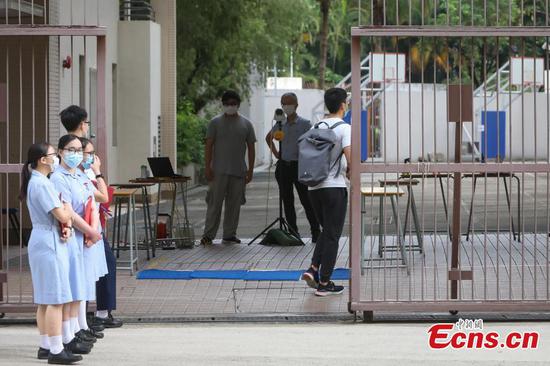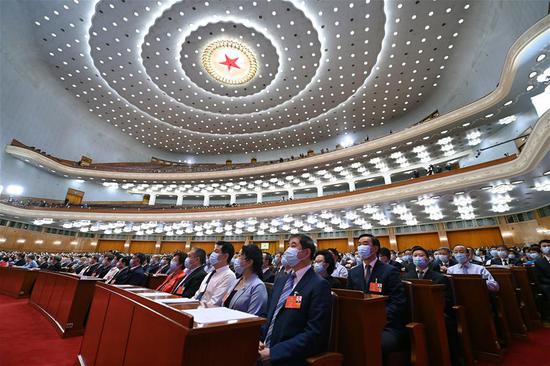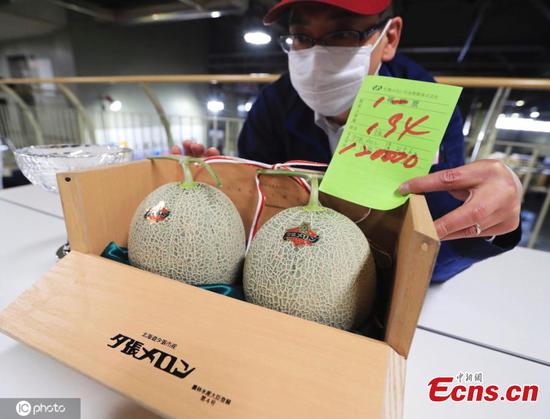
A woman teaches online courses on infant care through livestreaming in Qingdao, Shandong province, in March, helping unemployed people to gain occupational skills. (Photo/Xinhua)
As the COVID-19 outbreak continues to disrupt the job market, companies are making a joint push to help job seekers hone their skills and prepare them for the post-pandemic economy.
Chinese job-hunting and life services platform 58.com, for instance, has partnered with Pearson, a London-based publishing and education company, to set up vocational training centers in China.
Yao Jinbo, CEO of 58.com, said the company aims to create an open and cooperative platform for vocational skills training.
"We will work together with partners including Pearson to build 1,000 vocational skills training and employment centers in 200 cities across China in hopes of helping hundreds of millions of people to better empower themselves," Yao said.
The company aims to cooperate with more professional training institutions to build a comprehensive platform for the development of skills, Yao added.
The plan is part of the company's "58 Tongcheng University Initiative", which aims to create a one-stop open service platform for both job seekers and employers.
The initiative will feature six vocational training colleges in areas including real estate brokerage, human resources, family services, design and new media marketing, 58.com said.
Joe Lam, managing director of Pearson Greater China and India Hub, said vocational training education is a priority for the local government and a strategic focus of Pearson.
The partnership with 58.com is an innovative attempt for the company. Pearson hopes to bring its highly competitive vocational certificate courses to more talented Chinese individuals to help them succeed, Lam said.
Yao said technological advancements and societal developments have spurred demand for more skilled workers. The company aims to integrate its advantages to build a cradle for the cultivation of application-oriented talent, enhance their practical work abilities and help them continuously adapt to changing job requirements.
The company said that on-the-job professionals, job-seekers, school students and management personnel of government departments can all study under the initiative. The training courses will be tailor-made.
Affected by the pandemic, the total number of job postings and applications fell in the first three months compared with the same period last year, reports from multiple online recruitment companies showed.
According to the 2020 Employment Trend Report released by 58.com in March, 33.8 percent of working people in China interviewed by the company planned to switch jobs after the contagion fully comes under control.
The China Institute for Employment Research's CIER index, which is a measure of the degree of supply-demand tension in the labor market, dropped from 2.47 to 1.02 in the first quarter year-on-year, meaning each job seeker faced 1.02 job vacancies.
The short-term shock of COVID-19 increases pressure on the Chinese job market, but opportunities coexist with challenges, experts said.
Feng Xiliang, dean of the School of Labor Economics at Capital University of Economics and Business in Beijing, said the emergence of flexible employment is a good example, and this will continue to expand.
Safeguarding employment is one of the "six priorities" China's top leadership has put forward for the country amid the outbreak. The others are safeguarding people's livelihoods, the development of market entities, food and energy security, the stable operation of industrial and supply chains and the smooth functioning of society.
Last month, the Ministry of Human Resources and Social Security launched a skills training program with free registration.
By late June, the ministry aims to provide training courses through 50 online platforms. The courses will cater to 5 million workers.


















































